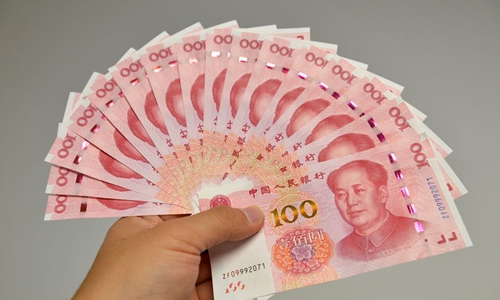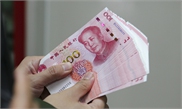SOURCE / INDUSTRIES
Local government bond risks 'under control'

File photo shows 100-yuan bank notes, the largest denomination of the Chinese currency. (Xinhua/Li Xin)
As local governments issue more bonds this year to tackle rising challenges from the coronavirus hit, financial experts have urged the Chinese government to fend off potential risks with better auditing and assessment procedures.
But they clarified that such risks will not be uncontrollable judging by China's current local government debt scale, in response to overseas media reports claiming that foreign investors are growing wary of China's local-debt wave.
The Chinese government has set this year's new local government bond quota at 4.73 trillion yuan ($666 billion), up 53.6 percent from last year's quota by value. The increase is 15.6 percentage points higher than the average of the past three years.
Wu Chaoming, chief economist at Chasing Securities, predicted that China's new local government debt this year might be "close to" the quota set by the central government.
"China is under pressure to increase fiscal spending, especially during such an uncertain time when the Covid-19 pandemic is still spreading overseas, to complete its task of stabilizing key areas including foreign trade, employment and finance," Wu told the Global Times.
However, overseas investors are growing wary of China's local government debt wave and unwilling to invest in those debts, citing reasons such as unsatisfying yields and insufficient liquidity, according to a Bloomberg report on Wednesday. According to the report, international funds now hold about 8.6 percent of China's central government bonds, but for local government notes, foreign ownership is merely 0.01 percent.
Liu Xuezhi, a macroeconomist at the Bank of Communications, said that the fundamental reason behind foreign investors' partiality for central government bonds is safety.
"Foreign investors believe that China's local government bonds carry higher risks than bonds issued by the central government, but the yield spread isn't enough to take such risks," Liu told the Global Times.
According to Wu, some of those worries are rational, and climbing local government debts do bring risks. For example, rising debts might lead to an illusion of policy easing, which could in turn prompt local governments to make illegal debt guarantees.
Too many debt issues will also push some local governments to initiate projects in a rush, regardless of investment returns, he said.
However, both experts said that China's local government leverage ratio, or debt/GDP proportion, is well within the safety range. The ratio was 23.3 percent at the end of the first quarter.
Wu said that the government should take measures to prevent risks from local government debt. For example, it must be made clear that issuers have to repay their debt by themselves, so that local governments don't get away with off-balance sheet borrowings.
He also suggested that China launch exchange-traded funds for local government bonds and attract overseas investors via programs such as the Bond Connect.
"I believe that overseas investors will put more money into China's local bonds, and policies will encourage them to do so with ongoing financial opening-up and China's economic recovery, which is earlier and better than in major overseas economies," Wu noted.

